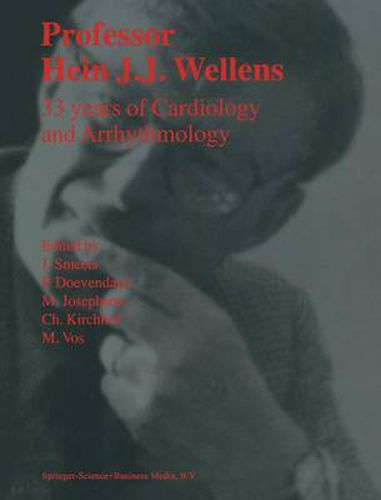Readings Newsletter
Become a Readings Member to make your shopping experience even easier.
Sign in or sign up for free!
You’re not far away from qualifying for FREE standard shipping within Australia
You’ve qualified for FREE standard shipping within Australia
The cart is loading…






This title is printed to order. This book may have been self-published. If so, we cannot guarantee the quality of the content. In the main most books will have gone through the editing process however some may not. We therefore suggest that you be aware of this before ordering this book. If in doubt check either the author or publisher’s details as we are unable to accept any returns unless they are faulty. Please contact us if you have any questions.
The first invasive evaluation of cardiac arrhythmias in humans was performed in 1967 in Paris (Prof. P. Coumel) and Amsterdam (Prof. D. Durrer). This was the start of a rapid increase in knowledge of the diagnosis, mechanism and treatment of cardiac arrhythmias. In that same year Prof. Hein J.J. Wellens became cardiologist in the Wilhelmina Gasthuis in Amsterdam. Initially in Amsterdam (1967-1977) and later on in Maastricht (from 1977), he was the driving force for many breakthroughs in clinical cardiac electrophysiology. With an active interplay between the knowledge derived from the 12-lead electrocardiogram and the recordings made with invasive electrophysiology, he composed new ideas leading to major contributions in clinical cardiac electrophysiology and, more generally, in arrhythmology. He published over 650 scientific papers and 142 books, and had numerous functions within scientific boards of prestigious journals. In addition he trained more than 120 cardiologists in clinical cardiac electrophysiology. On the occasion of the congress 2000, Future of Arrhythmology; Lessons From the Past, Promises For Tomorrow , the scientific work of Prof. Hein J.J. Wellens is highlighted. More than 60 articles over the whole time span have been selected. These articles are accompanied by comments from an expert, co-worker and/or former fellow in order to place the paper in a scientific time frame, including the relationship of the author with Prof. Hein J.J. Wellens.
$9.00 standard shipping within Australia
FREE standard shipping within Australia for orders over $100.00
Express & International shipping calculated at checkout
This title is printed to order. This book may have been self-published. If so, we cannot guarantee the quality of the content. In the main most books will have gone through the editing process however some may not. We therefore suggest that you be aware of this before ordering this book. If in doubt check either the author or publisher’s details as we are unable to accept any returns unless they are faulty. Please contact us if you have any questions.
The first invasive evaluation of cardiac arrhythmias in humans was performed in 1967 in Paris (Prof. P. Coumel) and Amsterdam (Prof. D. Durrer). This was the start of a rapid increase in knowledge of the diagnosis, mechanism and treatment of cardiac arrhythmias. In that same year Prof. Hein J.J. Wellens became cardiologist in the Wilhelmina Gasthuis in Amsterdam. Initially in Amsterdam (1967-1977) and later on in Maastricht (from 1977), he was the driving force for many breakthroughs in clinical cardiac electrophysiology. With an active interplay between the knowledge derived from the 12-lead electrocardiogram and the recordings made with invasive electrophysiology, he composed new ideas leading to major contributions in clinical cardiac electrophysiology and, more generally, in arrhythmology. He published over 650 scientific papers and 142 books, and had numerous functions within scientific boards of prestigious journals. In addition he trained more than 120 cardiologists in clinical cardiac electrophysiology. On the occasion of the congress 2000, Future of Arrhythmology; Lessons From the Past, Promises For Tomorrow , the scientific work of Prof. Hein J.J. Wellens is highlighted. More than 60 articles over the whole time span have been selected. These articles are accompanied by comments from an expert, co-worker and/or former fellow in order to place the paper in a scientific time frame, including the relationship of the author with Prof. Hein J.J. Wellens.